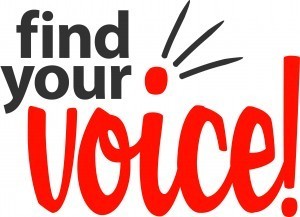Waiting To Be Asked
 As I noted last week, socially accepted gender roles influence behavior in ways we do not always recognize. My focus this week is on what I think of as “waiting to be asked.”
As I noted last week, socially accepted gender roles influence behavior in ways we do not always recognize. My focus this week is on what I think of as “waiting to be asked.”
Most of my readers are familiar with social norms that encourage many types of assertive and / or aggressive behavior in men, but are less approving of it in women. Those stereotypes, which often label “assertive” behavior in women as “aggressive” are breaking down, but they are still with us.
A significant element of this stereotype, since the days of Gloria Steinem marching down Fifth Avenue in New York City, has been the assumption of widespread male chauvinism, defined (by Merriam Webster as “an attitude of superiority toward members of the opposite sex”). In other words, women’s failure to succeed is all-too-often the fault of men who do not appreciate their skills and or reward them accordingly.
For the first fifteen years of my career in high finance in New York City, I accepted Steinem’s proposition without much question, despite the fact that I was a successful woman in a predominantly man’s world. My success continued in Australia, despite the fact “Aussie Ockers” were reputed to leave male chauvinists for dead.
What was different was the way I saw women in Australia. There, for the first time, I had a peer who was an exceptionally competent woman. While I loved my job, she hated hers. I soon realized that one of the biggest differences between us was that she was waiting to be asked.
In advance of client meetings, I would always advise my boss on what I needed to move my part of the project forward. Whether he incorporated my requests into his agenda or turned the meeting over to me, I always walked out with what I needed to do my job.
My officemate, by contrast, believed that he should ask what she thought or what she wanted to accomplish. Except he never did, leaving her constantly frustrated by her inability to get the information and resources she needed. She was a perfect example of the phenomenon described in an inspiring little treatise, Lady Leader, 10 Ways to Play in Big Boy Business, by Mary Stier (at one time a top executive for a Fortune 500 media company). Stier points out that there are a host of reasons why women hesitate to speak out: fear of rejection or scorn, lack of self-confidence or self-awareness, family pressure to be “ladylike,” a misguided sense of entitlement, and/or misunderstanding of priorities.
Stier’s point is that it is your responsibility to speak up. You can’t complain that you’re not appreciated you if you don’t make your voice heard. For whatever reason, my officemate in Australia did not make her voice heard while I did.
The issue can be as much a problem in a personal dimension as it is in professional one. The protagonist in my novel, A Fitting Place, has no problem making her voice heard in a professional context. In her personal life, however, she has consistently withheld her opinions from her successful and prominent husband. As her same-sex love affair causes her to re-think social norms about gender roles, she also begins to re-examine her own responsibility for making her voice heard in a romantic relationship, whether it be with a man or a woman.
Do you make sure your voice is heard?
This continues the series on themes that are significant in my upcoming novel, A Fitting Place. If you would be interested in doing a guest blog on one of these themes, click here.
The post Waiting To Be Asked appeared first on Mary Gottschalk - Author.



